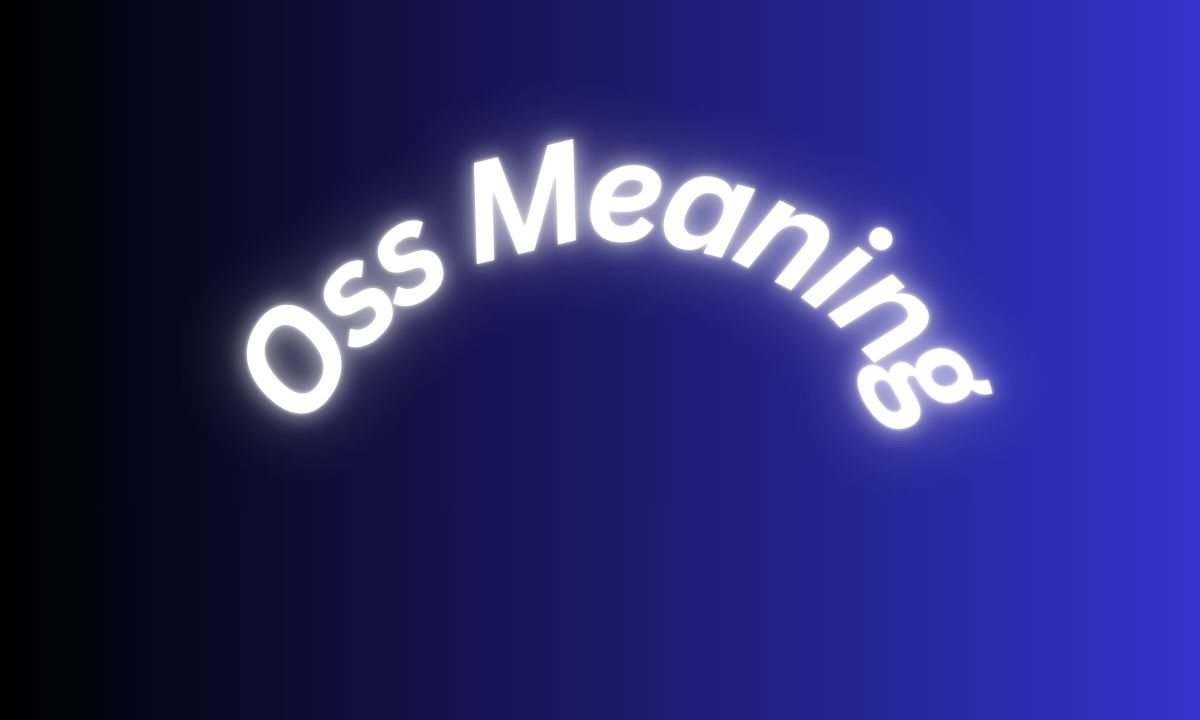The phrase “oss” meaning often sparks curiosity because it appears in multiple contexts, from martial arts traditions to casual online messages. Understanding its nuanced meanings is essential for clear communication in both professional and informal settings.
Exploring the origins of “oss” meaning reveals how a single expression can evolve across cultures. In martial arts, it reflects respect and acknowledgment, while in text conversations, it may serve as shorthand, abbreviation, or casual slang.
This article will explain the different interpretations of “oss meaning”, highlight its cultural significance, and provide alternatives that readers can use depending on tone and context. By the end, you will have a clear grasp of when and how to use it effectively.
Understanding “Oss” Meaning
The word “oss” originates primarily from Japanese martial arts, where it is an abbreviation of “osu” or “ossu.” It combines two kanji: “oshi” (push) and “shinobu” (endure). Together, the term conveys perseverance, patience, and mutual respect. Practitioners of karate, judo, or Brazilian jiu-jitsu use “oss” as a greeting, acknowledgment, or sign of respect toward instructors and peers.
Beyond martial arts, “oss meaning” has expanded into informal communication. In online chats or text messages, it may appear as shorthand for enthusiasm, agreement, or acknowledgment. This flexibility demonstrates how language adapts across cultures and platforms.
It is important to distinguish context. In the dojo, “oss” has a deeply respectful tone. Online, however, it is often lighter, casual, and sometimes even playful. Recognizing these variations helps prevent misunderstandings and ensures proper usage.
Oss Meaning in Text
When used in text messages or online chats, “oss” does not usually carry the weight of its martial arts origin. Instead, it often functions as shorthand for casual acknowledgment, enthusiasm, or affirmation. Someone might send “oss” in response to plans, similar to saying “got it” or “cool.”
For example:
- Friend 1: “We’re meeting at 6, right?”
- Friend 2: “Oss, see you there.”
In this context, the oss meaning in text is closer to a friendly acknowledgment, not a formal sign of respect. This shift shows how words migrate and adapt outside their original cultural setting.
The Cultural Weight of Oss
In traditional Japanese martial arts, “oss” embodies more than just a greeting. It reflects the philosophy of discipline, humility, and perseverance. Students use it when bowing to teachers, beginning practice, or acknowledging instructions. It conveys not just words, but attitude and character.
To misuse “oss” casually in this setting could appear disrespectful. In contrast, within text or casual speech, the term loses this cultural depth and becomes more of a social shorthand. This duality is why understanding context is crucial when interpreting the oss meaning.
Alternatives to “Oss”
Because “oss” has layered meanings, it is helpful to know alternatives that better fit specific situations. In some contexts, a more professional or polite option is appropriate, while in casual chats, playful alternatives may suit better. Below are examples organized by tone.
Polite Alternatives
- “Understood” – respectful and clear in professional contexts.
- “Acknowledged” – often used in formal communications, especially in work or training settings.
- “I see” – softer but still polite acknowledgment.
- “Yes, certainly” – conveys agreement with politeness.
- “Noted” – professional, straightforward acknowledgment.
Professional Alternatives
- “Confirmed” – often used in emails or meetings.
- “Absolutely” – clear agreement in a professional tone.
- “I’ll take care of it” – adds responsibility and professionalism.
- “I agree” – direct and professional affirmation.
- “Consider it done” – confident, professional assurance.
Casual Alternatives
- “Cool” – friendly acknowledgment, very common in text.
- “Got it” – casual but clear.
- “Sounds good” – relaxed agreement.
- “Sure thing” – informal yet positive acknowledgment.
- “Alright” – simple, easy casual acknowledgment.
Choosing the Right Alternative
Selecting the best substitute for “oss” depends on three factors:
- Tone – Is the conversation formal, professional, or casual?
- Context – Are you in a dojo, workplace, or group chat?
- Audience – Who are you addressing: a teacher, manager, or close friend?
For example, replying “oss” to your manager’s email might seem odd or unprofessional. In such cases, “Acknowledged” or “Confirmed” would be far better. However, texting a friend, “Cool” or “Got it” may be more natural.
Nuances of Tone in Alternatives
Language carries subtle tones that can shift meaning. Saying “Noted” might sound professional but also distant, while “Sounds good” feels warmer and more engaging. Similarly, “Absolutely” conveys stronger agreement than “I see.”
Understanding these nuances allows speakers to maintain clarity while respecting context. Using the wrong tone can unintentionally create misunderstanding. Thus, having a variety of alternatives at hand makes communication smoother.
Oss and Its Connection to Respect
The reason “oss” is valued so highly in martial arts is its connection to respect. Each use of “oss” in training reinforces discipline, humility, and acknowledgment of the other person’s effort. Even when exhausted, students say “oss” as a mark of perseverance.
When transferred into digital text, much of this depth is lost. However, the spirit of acknowledgment remains. Recognizing this difference is important so that you can choose whether to retain the traditional weight or opt for modern, casual use.
Examples of Oss and Its Alternatives
Here are 15 examples showing how “oss” and its alternatives function across contexts:
- Dojo: Student: “Oss, Sensei!” (Respectful greeting)
- Dojo: Partner: “Ready?” – Student: “Oss!” (Preparedness)
- Text: “I’ll be there in 10. Oss.” (Acknowledgment)
- Professional Email: “Acknowledged, I’ll prepare the report.”
- Work Chat: “Confirmed, the meeting is at 3 PM.”
- Casual Text: “Cool, see you later.”
- Casual Reply: “Got it, thanks.”
- Polite Response: “Yes, certainly, I will do that.”
- Team Setting: “Consider it done.”
- Friend Chat: “Alright, I’m in.”
- Polite Note: “I see, thank you for clarifying.”
- Workplace Exchange: “Absolutely, that makes sense.”
- Training Acknowledgment: “Oss!” (Respectful discipline)
- Formal Setting: “Noted, I’ll adjust accordingly.”
- Friendly Agreement: “Sure thing, let’s go.”
The Enduring Appeal of Oss
Despite its varying interpretations, the phrase “oss” meaning continues to thrive because it balances simplicity with depth. In martial arts, it captures respect and endurance. In digital text, it provides a quick acknowledgment that adapts well to informal exchanges.
Understanding when to use “oss” and when to choose an alternative ensures effective communication. It also demonstrates cultural sensitivity by preserving the respectful roots of the word while embracing its modern, versatile applications.
Conclusion
The oss meaning encompasses both traditional martial arts respect and modern casual acknowledgment. Its dual identity illustrates how language evolves with context and audience. By learning polite, professional, and casual alternatives, speakers can adapt their communication effectively.
Using the right tone builds clarity, avoids misunderstandings, and shows cultural awareness. Whether you say “oss” in the dojo or “got it” in a chat, the essence remains acknowledgment, respect, and connection.

Elizabeth crafts heartfelt messages for every occasion—anniversary wishes, love notes, prayers, thank-yous, and inspirational greetings—bringing warmth, joy, and connection to your special moments.










